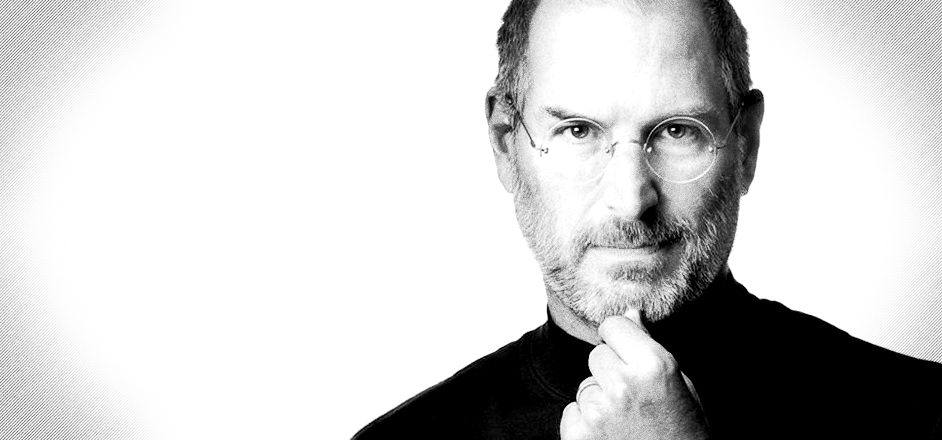Leave it to Steve Jobs to have predicted the future of data and privacy breaches in the world's tech and apps. During an interview at the D8 Conference in June 2010 (note: this was before Apple’s monstrous push into cloud-based storage), Jobs went to great lengths to emphasize that Apple takes its users privacy extremely seriously.
Facebook’s Mark Zuckerberg was in attendance, and the D8 interviewers insinuated they’d be asking him to speak to the same subject of privacy (the dude must have been sweating through his seat).
Jobs, however, answered with great clarity saying, “We’ve always had a very different view of privacy than some of our colleagues in the [Silicon] Valley. We take privacy very seriously.” Particularly, he mentioned location tracking in phones.
“ … before any app can get location data, we don’t make it a rule that they have to put up a panel and ask [permission], because they might not follow that rule. They call our location services and we put up a panel. Saying, ‘This app wants to use your location data, is that okay with you?’ — every time they want to use it.”
If you’ve ever used an iPhone, you know exactly what this privacy yes-or-no bar looks like.
One has to ask, have I ever been prompted like this on Facebook.com? — which is a massive collector of your personal data (so much to the point that you can never really delete your page once you have it. It simply, “deactivates”).
No, Facebook doesn’t ask anyone if it can collect microscopic points of data, nor does it prompt users each time the app is opened. There are never questions asked whether or not you’d like this information to be stored and how it will be used.
In the 2010 interview, Jobs was asked if Apple’s transition to more cloud-based data storage would mean less privacy and he was quick to say, “No!
"Privacy means that people know what they’re signing up for. In plain English, and repeatedly. That’s what it means. I’m an optimistic, I believe that people are smart. Some people want to share more than others. Ask them. Ask them every time. Make them tell you to stop asking them if they get tired of your asking them. Let them know precisely what you’re going to do with their data.”

Which begs the question, what can really be done if data privacy is broken?
To start, Google “Facebook Data Breach” and a startlingly recent brigade of articles is percolating about the massive failure by the social media giant — when data analytics firm Cambridge Analytica secretly harvested the personal data of 50 million Facebook users.
AKA: major privacy violation.
Vox reports that the Cambridge Analytica breach began in 2014, when a personality test was distributed through a Facebook app in which users agreed to allow their personal information to be collected. (Freaky, because for some os uf, 90 percent of our personal Internet usage is personality tests because we truly have nothing better to do with our time.) The site continues, “ … it turned out that this app didn’t just scrape the personal data of the roughly 270,000 users who agreed to take the personality quiz. It also scraped info from the friends of people who took it. That, in turn, meant tens of millions of Facebook users had their data collected — without their permission or knowledge.”
Ironic, because in 2010 Jobs explained that is exactly why Apple created its “curated App Store.” Jobs said, “We’ve rejected a lot of apps that want to take a lot of your personal data, and suck it up into the cloud. A lot.”
The same company found to have pillaged user data on Facebook was hired in 2016 by the Trump campaign, and the Times found that data was used for “developing techniques that underpinned its work” on the campaign.
So the sketchy shit gets sketchier.
Senator Amy Klobuchar (D-MN) said in a statement mid-March, “They say ‘trust us,’ but Mark Zuckerberg needs to testify before the Senate Judiciary Committee about what Facebook knew about misusing data from 50 million Americans in order to target political advertising and manipulate voters.”
Other political figures have expressed their certainty and fear that this is not the first time a third-party company violated Facebook’s privacy rules by collecting data on users … with Facebook’s knowledge of it happening.
Zuckerberg recently agreed to appear before Congress to discuss the scandal, which has already led many high-profile company pages to call it quits on the social media site altogether, like Playboy, who released a statement saying, “There are more than 25 million fans who engage with Playboy via our various Facebook pages, and we do not want to be complicit in exposing them to the reported practices … Playboy has always stood for personal freedom and the celebration of sex. Today we take another step in that ongoing fight."
*quietly deactivates Facebook for the umpteenth time.



Leave a Reply
You must be logged in to post a comment.